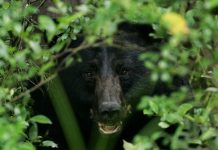SALEM, Ohio – Following reports that a highly contagious viral disease in birds has spread from California to Nevada, poultry farmers and bird owners are urged to implement precautions to minimize the disease’s spread.
Exotic Newcastle disease, which is deadly to birds and poultry, was most recently found in a flock of 30 chickens near Las Vegas.
California. Since October, the outbreak had been confined to southern California.
The federal quarantine in California has been expanded to eight counties.
Nearly 1,250 noncommercial flocks and five commercial poultry operations in the area have been infected or exposed to the disease, according to James Lenarduzzi of the Texas Animal Health Commission.
As of mid-January, he said more than 150,000 birds had been euthanized and another 1.5 million birds are slated for depopulation.
Fatality. The disease can be fatal to all species of birds but is particularly devastating to poultry, infecting an entire flock in three to four days, according to the Ohio Department of Agriculture.
Although people may become infected with the virus, it is typically limited to conjunctivitis, better known as pinkeye, and is gone within a week.
What if? If a poultry flock in Ohio were to become infected, it would be quarantined immediately by animal health authorities and would likely be destroyed to contain the disease, the department said.
Infected birds may sneeze, gasp for air or cough, and develop muscular tremors or paralysis.
While some birds may have greenish, watery diarrhea, other infected birds may show no signs prior to death.
Advice, tips. Ohio Department of Agriculture offers the following advice:
* Avoid traveling in quarantined areas. People can carry the virus from an infected flock to a healthy one on vehicles, shoes, clothing, sacks, egg trays and crates.
* Keep unauthorized visitors out of poultry houses. Make sure authorized people wear protective clothing and shoes before entering.
* If someone such as an inspector or feed truck must enter, keep a record of who they are, their telephone numbers, where they last visited and where they’re going next.
* Avoid contact with wild waterfowl. They may be carriers of Exotic Newcastle.
* Do not borrow or loan farm vehicles or equipment without cleaning and disinfecting before and after use.
* Because they present an increased risk of disease exposure, avoid contact with backyard flocks of chickens, ducks, geese and other birds.
Ohio threat. Anyone suspecting the disease in Ohio is required by law to report it to animal health authorities. The 24-hour reporting number is 800-300-9755.
To submit samples for testing, contact Animal Disease Diagnostics Laboratory at 614-728-6220.









